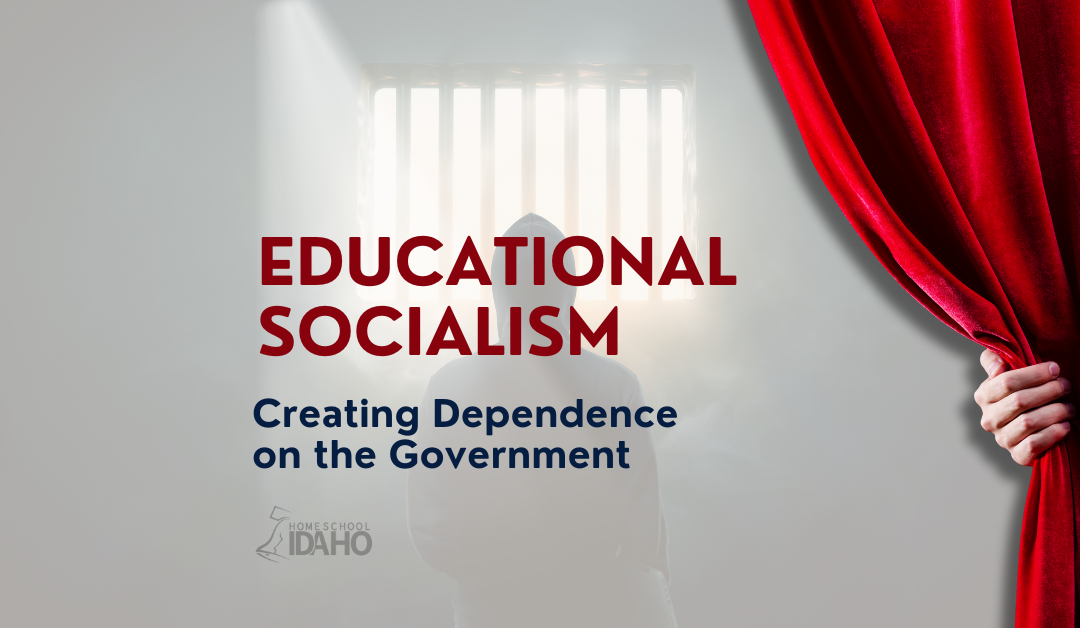The school choice movement has become the Golden Child of conservatives across the country. But is school choice really conservative? The resounding answer is absolutely not! It is more like the conservative approved educational socialist welfare system.
First, we need to have a basic understanding of the values of conservatism. These values include:
- Favors fiscal responsibility
- Favors limited government
- Favors smaller government
- Favors tax cuts
- Favors government accountability and transparency
- Encourages personal responsibility
- Values free market solutions
When viewed through this lens, school choice fails at every point.
Fiscal Responsibility
School choice increases the cost of education by forcing the taxpayer to fund multiple school systems: public, private and homeschool. And it attempts to do so without any mechanism to track the effectiveness of such spending in producing the desired results.
Limited Government
School choice funding expands government control over more kinds of education than they already have. Whether the government chooses to exercise that control or not does not change the fact that government funding is the lever and the government gets to choose how much pressure to apply.
School choice operates on the assumption that it is the government’s job to make sure that everyone has the same amount of everything, in this case education funding. This is not only counter to the limited government stance of conservatism, it is actually a socialist tenet.
Smaller Government
School choice funding does not reduce the size of government. It either creates an entirely new bureaucracy to administer and oversee public funding of private and homeschools (think oversight committees), expands the responsibilities within existing departments (think tax credits being administered through the State Tax Commission), or demands increased staffing within existing departments to manage the workload. No matter which way you look at it, school choice grows the government.
Tax Cuts
School choice funding gets its money from the revenue collected by the government. It doesn’t matter whether that money is funneled through the tax commission or the department of education. The government gets that revenue by levying taxes on its citizens. It is a practical impossibility to both spend more money (on school choice or other government funded programs) while reducing the amount of money that the citizens pay in taxes. In fact, school choice legislation in other states have actually led to an increase in taxes and an overall increase in the cost of education!
Government Accountability and Transparency
School choice funding actually comes with promises of no regulation, which stands in direct opposition to a conservative commitment to transparency. Transparency starts when tax dollars are collected and persists until the end goal is achieved. In fact, a key feature of misspending of tax dollars is an inability to actually point to the things that money paid for. It is reasonable to expect that if taxes are levied for public libraries there should be high quality public libraries. School choice programs tell the taxpayer that once school choice money leaves government hands, the taxpayer has no right to expect proof that the money was spent for its intended purpose. Unfortunately, such thinking has led to misspending, unaccounted for money, and outright fraud.
Personal Responsibility
A strong work ethic is one of the foundational values of our country. School choice programs undermine this foundation of personal responsibility. These programs give the government coercive power to levy money from all its citizens in order to fund personal educational choices for a select few. It is yet another welfare system that gives public money to those who want something that they can’t afford, or would not otherwise choose to purchase if it was their own money paying for it.
Conservatives continually oppose Universal Health Care and Universal Guaranteed Income because of their socialist underpinnings. How is Universal School Choice any different? It, like the others, is simply a euphemism for redistribution of wealth (see here).
Like other welfare programs, School Choice creates dependency on the government rather than encouraging personal responsibility for personal choices. It trains us to rely on the government to provide for our needs, removing us even further from our roots in faith and independence.
Free Market Solutions
Conservative proponents like to argue that public funding for all education options will create market competition. But if all the money in the education market place is coming from a single source, entangling private actors (private and homeschools and providers), it really isn’t a free market – it is a monopoly. And like all monopolies, inflation is one of many outcomes.
Who do profitable companies cater to in a market economy? The customer with the money. In the past that was homeschool parents and private schools looking for high quality resources. In the case of school choice, that customer becomes the government, not the parents, and those same curriculum and resource companies are now beholden to government interests.
Finally, by subsidizing private and homeschools, school choice programs choose winners and losers in the education market.
These points are just the highlights of why school choice is not conservative and why true conservatives should run from school choice legislation like their freedom depends on it.
SAY NO TO PUBLIC FUNDING OF PRIVATE AND HOMESCHOOLS!
Sources and Links
Full video from Schoolhouse Rocked: The True Cost of School Choice
https://nickitruesdell.com/school-vouchers-for-homeschooling-are-not-conservative/
https://www.idahoednews.org/voices/private-schools-accepting-taxpayer-subsidies-is-not-conservative/
https://schoolhouserocked.com/school-choice-unmasking-the-euphemism/
https://www.idahoednews.org/voices/leave-the-private-education-market-alone/
A Conservative Fiscal View on Why Vouchers Don’t Serve the Interests of Rural America (idahobe.org)
https://nepc.colorado.edu/publication-announcement/2021/05/voucher-costs
